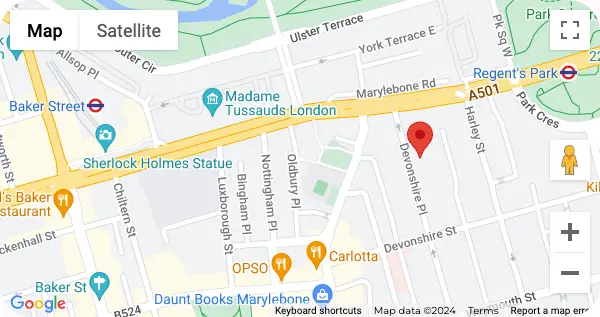Summary Box
Learn about its typical side effects and review the recent research on cancer risk. Keep up with the latest right here to make the best decision for your health. This guide is here to help you make sense of the latest research so that you can navigate the choices bearing on your health with confidence and clarity.
What You Will Learn:
- How Mounjaro works and how patients usually use it for diabetes and weight management.
- A complete list of the most typical side effects, from GI issues to what to do about them.
- Patients’ experiences, insights into how they have used Mounjaro, the challenges and successes they encountered combined with commentary by healthcare experts.
- Real-world effectiveness of Mounjaro, including the most up to date information and patient outcomes seen in the UK.
What Is It and How Does It Function?
Mounjaro is an injectable GIP and GLP-1 receptor agonist combination treatment. As an agonist of both receptors, it modulates a wide range of metabolic process. It works primarily by making the pancreas release insulin into the blood when sugar levels are high, reducing output of another hormone called glucagon that causes the liver to produce sugar, and helping slow down digestion to moderate levels of glucose in the blood after meals.
Aside from the blood sugar regulation, Mounjaro also works for body weight management. It acts on receptors in the brain that regulate appetite, helping patients feel full for longer periods and consume fewer calories overall. It doesn’t help in long, consistent weight loss by reducing insulin sensitivity and helping sugar store up to cause processed fat buildup. These dual actions means Mounjaro is an effective choice for adults living with type 2 diabetes or obesity – it has measurable effects on both glucose and weight, enabling you to do so much more in addition to diet and exercise
How Patients In The UK Use Mounjaro
It is licensed for the treatment of type 2 diabetes in adults when diet and exercise do not provide enough results for them. Its impact on weight remains under review and there is no full licence for bariatric use in obesity in the absence of type 2 diabetes, despite evidence from trials of substantial weight benefit.
However many patients in the UK, have reportedly so far seen positive results in regard to weight loss, though it is not yet fully licensed for the obesity treatment without type II diabetes in the UK. Ongoing clinical trials are still providing valuable information about its potential use in a wider application and health care professionals are still monitoring the long-term effects on weight as well as metabolic health. For people with type 2 diabetes, Mounjaro is a potential choice for better health and preventing complications related to diabetes.
What Are The Common Side Effects of Mounjaro
- Nausea, Vomiting and diarrhoea
The adverse effects most commonly reported for Mounjaro are gastrointestinal issues. A lot of the patients also have some nausea, vomiting and diarrhoea or gastrointestinal discomfort in general during that period.
The healthcare professional advised patients to take Mounjaro with food, initiate therapy at a reduced dose, or escalate dosage according to treatment schedule for such side effects. It is also essential to report any persistent or severe symptoms to a doctor who may then give advice on how safely treatment can be pursued and minimize the degree of discomfort.
- Significant Weight Loss & Reduced Appetite
Mounjaro is used to reduce your appetite, lose weight and lower your recipe of calories. Although generally a very effective strategy for many patients, rapid weight loss or too much weight loss may lead to fatigue, dizziness or unbalances in body nutrients.
- Other Possible Side Effects
Other side effects may include constipation, upset stomach, headaches and injection site reactions including redness and swelling. Other patients have also reported fatigue and a change in taste.
What Are The Possible Cancer Risks Due To Mounjaro
- Thyroid Cancer
Animal studies suggest there might be a possible risk of medullary thyroid cancer with GLP-1 receptor agonists, including tirzepatide. Although there is no direct evidence confirmed in humans, regulatory agencies recommend caution in individuals with a family history of thyroid cancer risk
- Pancreatic Cancer
Several initial studies indicated the possibility of such a relationship but larger population-based studies concluded that no causal correlation was present. There is currently no proven risk of pancreatic cancer with tirzepatide, but it is being monitored.
- Colorectal Cancer
Other studies have focused on GI cancers, including CRC. There is no known association of tirzepatide with colorectal cancer from current studies.
- Breast Cancer
Its potential in breast cancer risk remains to be examined. Although evidence is limited, direct proof that Mounjaro causes increased risk of breast cancer death has never been established.
Effective & professional doctor-led Mounjaro at our central London clinic
Verified Before & After
Verified Before & After
Learn About The Expert Insights and Regulation About Mounjaro
- FDA and MHRA warnings
US Food and Drug Administration, UK Medicines and Healthcare products Regulatory Agency warned of potential risk of thyroid tumours in studies on animals. They stress that these findings are unproven in humans but that patients with such histories should only receive therapy if the benefits would exceed known or potential risks.
- Insights From the Experts
Endocrinologists and oncologists stress that caution, rather than alarm, should be advised even that there is no conclusive evidence it causes cancer in humans for linking Mounjaro to cancer. They emphasize that patients treated should be screened for thyroidal disturbances and gastrointestinal symptoms with treatment.
What Are The Patient Experiences
- Feedback From Patients
It can produce different results between individuals. However, the majority focus on successful weight loss and improved diabetes control, with others discontinued because of persistent gastrointestinal side effects. There were also patients who have reported that they become more energized, and have lessened their food cravings. Changes like these can help you better stick to good eating habits and routines. Some patients even realize a shift in mood and motivation, which in itself is of great help for sustaining lifestyle modification.
That is why it’s very essential to have a regular consultation with your provider since results may differ from one person to another. It would always depend on your current health situation and other factors.
- What Are Their Most Typical Side Effects & Treatment Outcomes
Nausea is the most frequently cited side effect among individuals who have done mounjaro, although some say they experience only slight nausea. Weight loss responses have ranged from modest to pronounced in degree; some have depended on dosage, compliance, and multibreed metabolism.
Mild stomach ache or bloating are also common symptoms during this period of adjustment. The weight loss benefits of Mounjaro are believed to have been responsible for other health enhancements including lower BP and cholesterol. These benefits, however, may require time and regular use, which underlines the importance of patients staying healthy and fit in the course of therapy. Regular monitoring by health professionals is important to monitor the effect of the medication and its side effects.
The Benefits and Risks That You Should Know
- Potential benefits in weight management and diabetes control
Mounjaro has been found to be conducive in decreasing HbA1c levels, promoting better management of blood sugar in type 2 diabetes patients. Furthermore, a significant portion of the population will lose even if they later regain weight on low carbohydrate diets which is also likely to be metabolically beneficial. The potentially beneficial effects of this were also on cardiovascular health in type 2 diabetic controlled patients.
The medication is especially beneficial for adults with overweight or obesity, because even a small amount of weight loss can improve insulin sensitivity, blood pressure and cholesterol. Although individual results may differ, adding Mounjaro to healthy lifestyle changes including a balanced diet and exercise may help optimize your results while supporting long term health goals.
- The Risk of Cancer Due To Mounjaro
Mounajro commonly has gastrointestinal adverse effects, nausea, vomiting and diarrhoea, but these are temporary and consulting with your doctor might help in managing. However, based on some studies and research done through animals, it could have a risk of cancer, none has been proven in humans yet.
Before patients start treatment, they should speak with their healthcare provider about any personal or family history of cancer. Your doctor will be able to evaluate your specific risks, follow your health during treatment and give you advice on how early detection of the disease can really make a difference in its course.
What You Should Know If You Are Considering Mounjaro
- You Should Consult with the Experts
Patients should consult a healthcare practitioner before attempting to use Mounjaro. Considering factors such as medical personal medical history, family history, family history of thyroid cancer, and medicine being taken.
- Know About the Side Effects & How to Monitor it
Concerning gastrointestinal symptoms, unexplained neck swelling and abdominal pain, patients should seek medical attention. After the procedure, patients can be followed for progress and any problems can be identified early through regular follow-up and blood tests.
- Change of Lifesyles
Alternatives for those who are not suitable for Mounjaro include other GLP-1 receptor agonists, diet modification, increased physical activity and bariatric surgery. Sustainable lifestyle interventions continue to be the cornerstone of diabetes and weight management.
Most Frequently Asked Questions
- Does Mounjaro increase cancer risk?
There is no known analysis that has shown the cause‐and‐effect relationship between Mounjaro and the high risk of cancer. Further studies are going to monitor for any relationships between GLP-1 receptor agonists, including Mounjaro, and cancer. For now, you should continue to follow your doctor’s orders and go for follow-ups to monitor your health.
- What are the common side effects of Mounjaro?
Nausea, vomiting, diarrhoea and anorexia. Such side effects are usually mild and time limited as the body has to become accustomed to the medication. If those symptoms hang around, or get worse, you should get in touch with your doctor for guidance about how best to treat them.
- Is Mounjaro approved for weight loss in the UK?
Mounjaro is mainly suggested for type 2 diabetes. Its off-label use for obesity should be discussed with your doctor. It does have some good clinical data for weight loss, but it is not indicated in this country purely as a weight-loss agent. To learn more, ask your doctor if Mounjaro is right for your weight management.
- Do I need to worry about thyroid cancer while on Mounjaro?
There is no definite study about this yet. Doctors may recommend caution if you have thyroid issues, although there’s no direct link indicated by current data. Your doctor can help you to determine the risk and whether Mounjaro is a treatment that’s right for you.
- Is Mounjaro appropriate for cancer survivors?
If you have cancer, and wish to try Mounjaro you should ask your oncologist whether it would be appropriate and beneficial to you. Cancer survivors may have special health concerns, so treatment should be adjusted for each person. A physician can evaluate whether the benefits outweigh the potential risks in your particular situation.
Reserve a mounjaro appointment
One of our experts will be more than happy to answer any questions you have.
Book AppointmentMatt Empringham
★★★★★
Great experience
28th January 2026
Danny Sim
★★★★★
Was amazing. First time in London and didn’t know well about how things worked but I was explained perfectly on the procedures and my issues were treated very properly. Strongly recommended!
26th January 2026
Laura Storto
★★★★★
Rose was Great
27th January 2026












